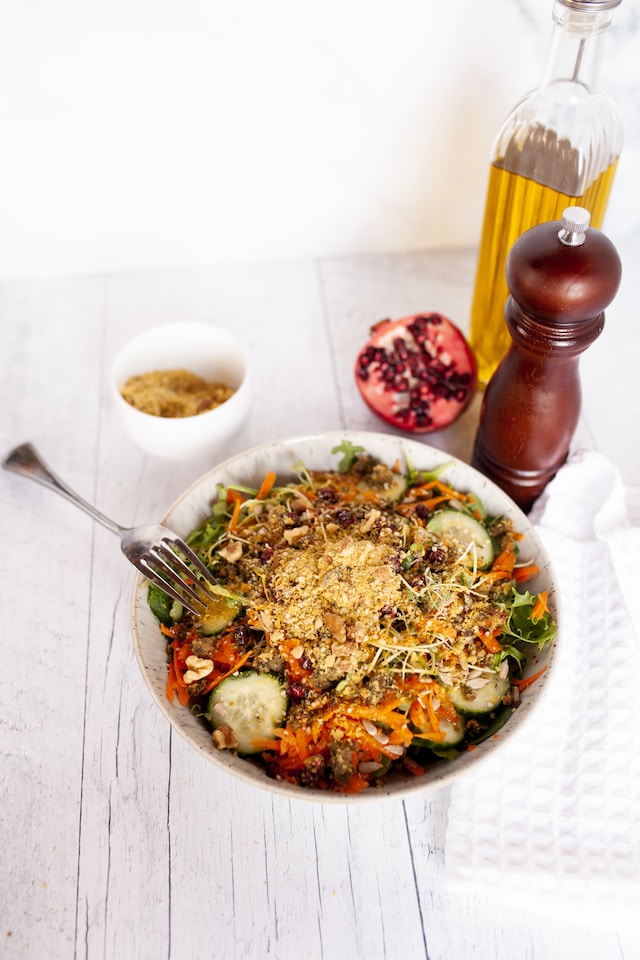We all know vegan diets are healthy, compassionate to animals, and beneficial for the environment. But eating whole foods on a plant-based diet can come with a hefty price tag. Eating vegan doesn’t have to be expensive though! In this blog post we will share our top tips for saving money on your vegan diet so that you can eat healthy without breaking the bank (or feel guilty about what’s in your shopping basket).
With some minor tweaks to your buying habits and cooking routine, it is possible to enjoy an ethical plant-based lifestyle without sacrificing your budget. So whether you’re just starting out or have been studying nutrition labels since childhood – these budgeting secrets are sure to help everyone looking for ways to improve their food choices while still maintaining financial stability!
Why Eating Plant-Based Can Be Affordable
Contrary to popular belief, plant-based foods can be less expensive than animal products. Plant-based staples such as beans, lentils, and grains are generally more affordable than animal-based foods. Additionally, cooking from scratch can be more cost-effective than relying on pre-packaged convenience foods.
While specialty vegan products like vegan cheeses and meat substitutes can be tasty and convenient, they can also be expensive. However, it’s important to note that they are not necessary for a healthy and satisfying plant-based diet. There are plenty of whole, plant-based foods that can provide all the nutrients your body needs.
By focusing on incorporating more whole foods into your diet, like fruits, vegetables, whole grains, legumes, nuts, and seeds, you can save money and still enjoy a varied and nutritious diet. Additionally, making your own plant-based dairy substitutes and other products can be a fun and rewarding way to save money and experiment with new recipes.
Tips for Saving Money on a Plant-Based Diet
With a few simple strategies, it’s possible to eat a plant-based diet on a budget. Here are some tips and tricks for saving money while still enjoying delicious, nutritious plant-based meals.
Plan Meals Ahead of Time
One of the easiest ways to save money on groceries is to plan meals ahead of time. By taking the time to prep your meals for the week, you can avoid last-minute purchases and expensive takeout meals. This can also help reduce food waste, as you can buy only the ingredients you need for the week.
Buy in Bulk
Buying in bulk is another great way to save money on plant-based foods. Many bulk food stores offer a wide variety of plant-based staples, such as rice, beans, and lentils, which can be purchased in larger quantities for a lower price per pound. This can also help reduce packaging waste and take advantage of discounts.
Shop Seasonally and Locally
Shopping for seasonal and local produce can also help save money on plant-based foods. In-season produce tends to be fresher and more affordable than out-of-season produce. Consider shopping at farmer’s markets or joining a community-supported agriculture programme for access to affordable, fresh produce.
Use Coupons, Sales, and Loyalty Programmes
Coupons, sales, and loyalty programmes can also help you save money on plant-based groceries. Check your local grocery store’s weekly ad for deals on plant-based products, and consider signing up for loyalty programs to earn discounts and other rewards.

Plant Based Vegan Diet
Make Use of Plant-Based Protein Sources
Protein is an essential nutrient for a healthy diet, but it can be expensive to buy meat substitutes. Luckily, there are many affordable “Vegan Protein Sources you can Incorporate into Your Diet” such as tofu, tempeh, beans, lentils, and quinoa. These ingredients can be purchased in larger quantities and used in multiple meals.
Repurpose Leftovers
Another way to save money on plant-based meals is to repurpose leftovers. For example, leftover rice can be used in a stir-fry, and leftover roasted vegetables can be used in a sandwich or salad. This can help you create new meals and minimise food waste.
Consider Purchasing Frozen Fruits and Vegetables
Frozen fruits and vegetables can be less expensive than fresh produce and still offer similar nutritional benefits. Consider purchasing frozen fruits and vegetables when fresh produce is out of season or not available.
Experiment with Making Your Own Plant-Based Milk, Yogurt, and Cheese Substitutes
Making your own plant-based milk, yoghurt, and cheese substitutes can be more affordable than store-bought alternatives. There are many recipes available online for homemade plant-based dairy substitutes. Experimenting with these recipes can help you save money and create delicious, nutritious alternatives to dairy products.
Utilise Affordable Vegan Recipe Resources
There are many affordable vegan recipe resources available, including cookbooks, online blogs, and social media. Utilise these resources for inspiration and to discover new, affordable plant-based meals. This can help you stay motivated and avoid getting stuck in a rut with the same meals over and over again. Don’t miss our “Easy and delicious plant-based recipes for beginners”.
Grow Your Own Produce
Finally, consider growing your own fruits, vegetables, and herbs. This can save you a lot of money, and it’s also a great way to get outdoors and learn more about gardening. Even if you don’t have the space for a full garden, you can still grow some herbs in pots or on windowsills.
Making Plant-Based Eating Sustainable Long-Term
While it’s important to save money on groceries, it’s also important to find a balance between cost and nutrition. It’s okay to occasionally indulge in more expensive vegan products, as long as it fits within your budget. Additionally, finding a supportive community can help make the transition to a plant-based diet more sustainable. Finally, reducing meat consumption has many environmental benefits, so keeping this in mind can be an additional motivation to stick with a vegan lifestyle.
Eating plant-based on a budget is not only possible but also an affordable and healthy way to live. It’s important to remember that finding a balance between cost and nutrition is key to making plant-based eating sustainable in the long term. With these tips and strategies in mind, you can “Unlock the power of nutrition” without breaking the bank.
Happy cooking!

